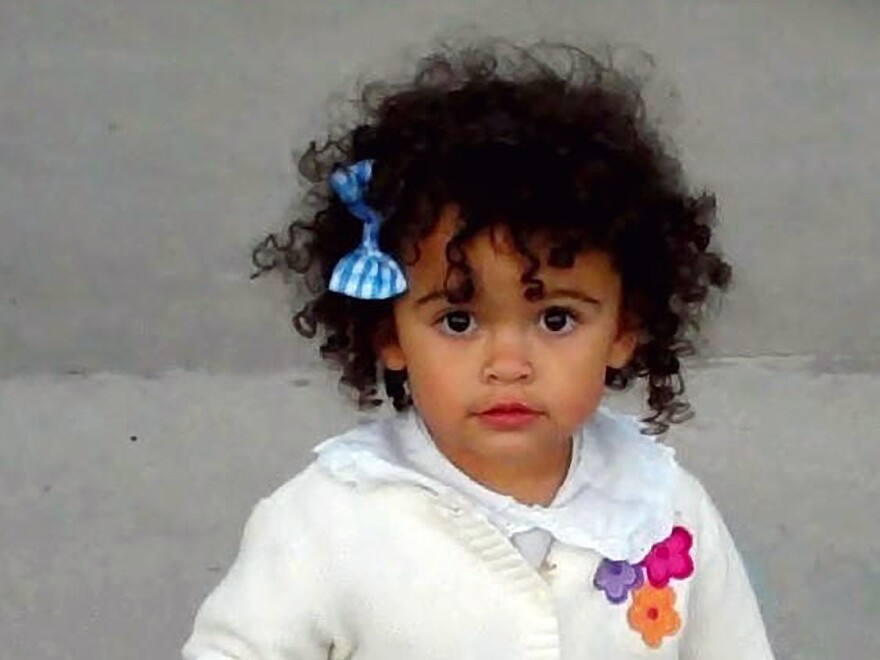The complicated and emotional case of a Native American girl who was adopted by a couple in South Carolina but has been living for more than 18 months with her biological father in Oklahoma has taken another turn.
It became known Tuesday that the Oklahoma Supreme Court "issued a stay late Friday to block an order from a Nowata [Okla.] County court to hand the [nearly 4-year-old girl] over to her adoptive parents," the Tulsa World reports.
CNN starts its coverage this way:
"A man who has been fighting for permanent custody of his daughter under Native American tribal law can continue to raise her for the moment in Oklahoma, a new twist in a high-profile legal case already decided by the [U.S.] Supreme Court."
The Oklahoma Supreme Court's latest action isn't a permanent decision. It isn't known when the court will decide once and for all whether the lower court's decision (to return the girl to South Carolina) should stand.
In July, NPR's Nina Totenberg wrote for us about how the little girl ended up being taken from her adoptive parents:
"Eighteen months ago the South Carolina Supreme Court ordered 2-year-old 'Baby Veronica' removed from her adoptive parents, Matt and Melanie Capobianco, and turned over to her biological father, Dusten Brown. The Capobiancos had adopted the child at birth, and provided what all agreed was a good home. The state court said it was acting reluctantly in transferring custody but was required to do so under a federal law aimed at keeping Native American families together."
But in June this year, as Nina reported:
"The U.S. Supreme Court ruled that since Brown, the biological father, had refused to provide financial support for the biological mother and child when told of the pregnancy — and because he had renounced his parental rights at that time — he could not later object to the adoption. The high court rejected Brown's argument that the Indian Child Welfare Act trumped state law in such circumstances."
Since then, the case has been back before state courts — with the additional complication of the Cherokee Nation's legal interests. The Tulsa World sums things up this way:
"The Cherokee Nation has claimed jurisdiction of the case because Veronica and her father are both members of the tribe. But proceedings in tribal court appear to be on hold while the Cherokee Nation joined Brown in appealing to the state Supreme Court.
"Further appeals might be pointless, however, if the Oklahoma Supreme Court sends Veronica to South Carolina, where that state's Supreme Court has already given custody to the Capobiancos.
"Last month, a judge in South Carolina ordered the Brown family to hand over Veronica 'immediately,' but that order wasn't valid in Oklahoma until Friday, when the judge in Nowata County confirmed it."
Copyright 2021 NPR. To see more, visit https://www.npr.org.





